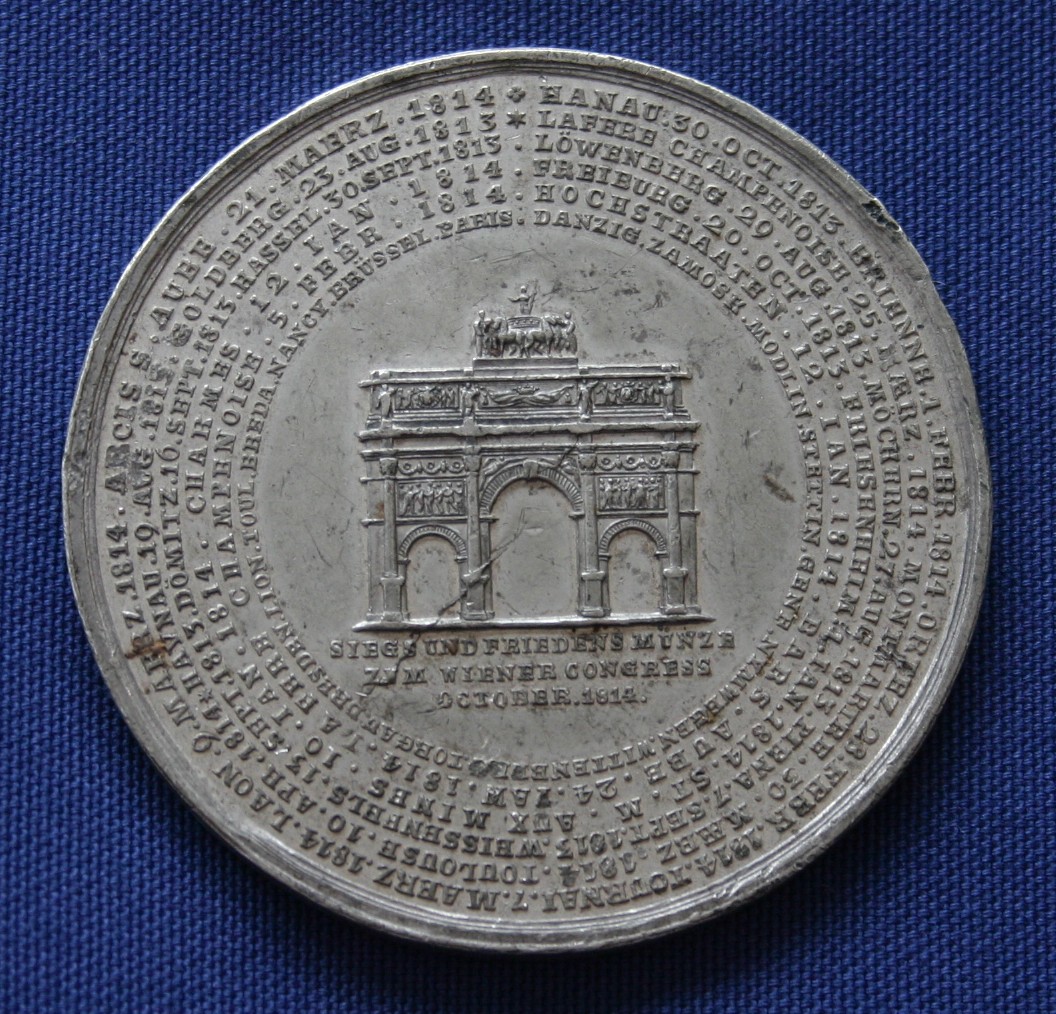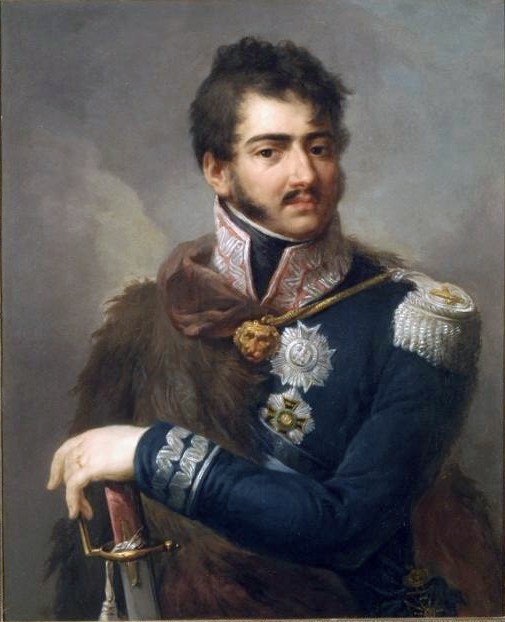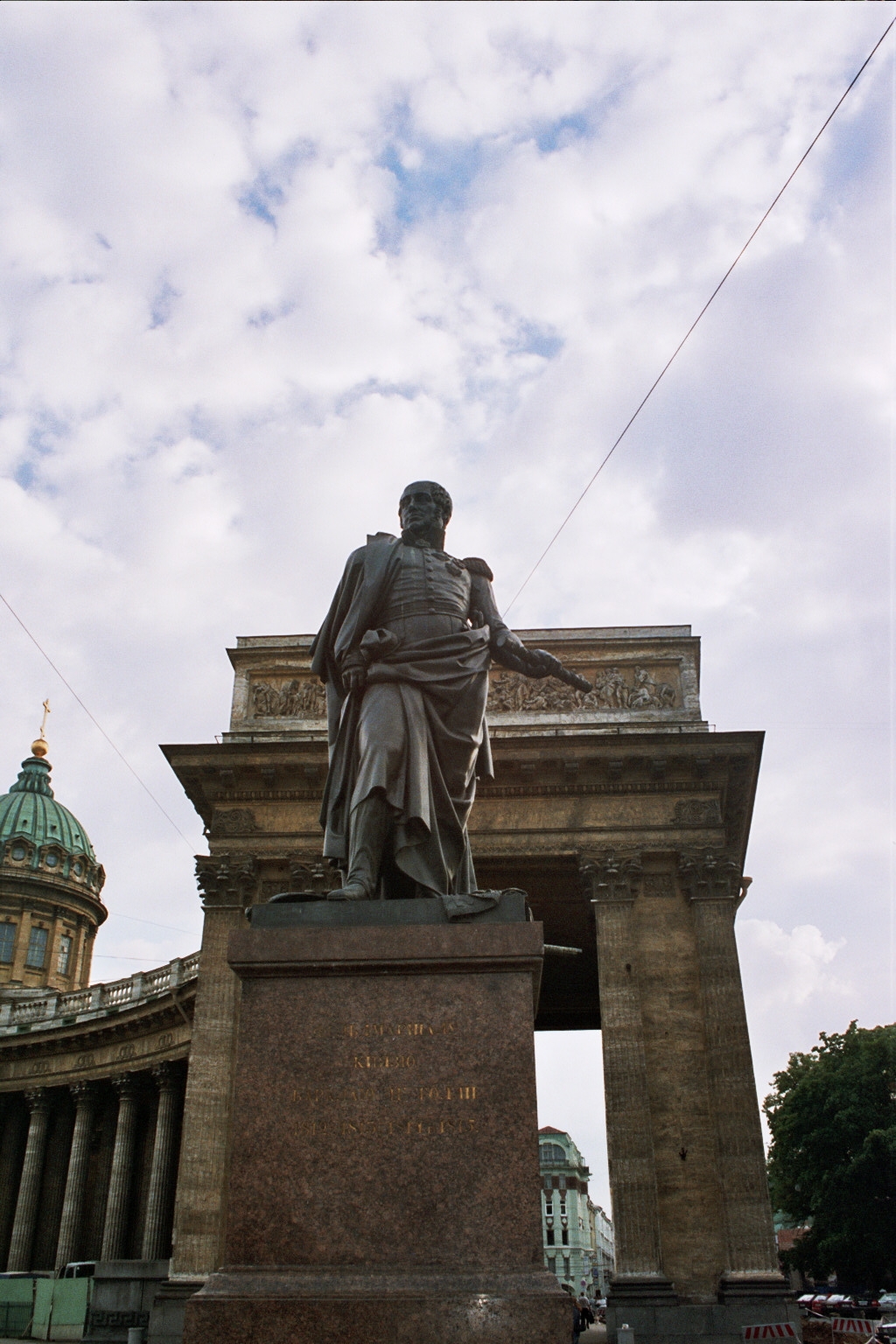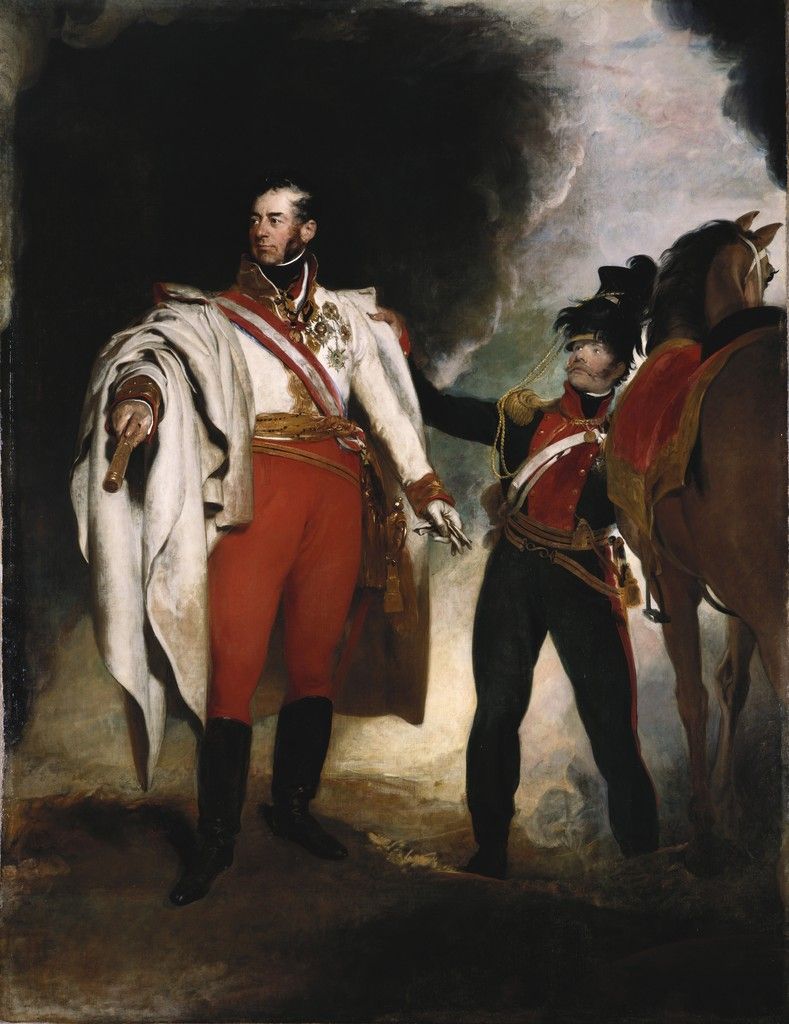|
German Campaign (Napoleonic Wars)
The German campaign (german: Befreiungskriege , lit=Wars of Liberation ) was fought in 1813. Members of the Sixth Coalition, including the German states of Austria and Prussia, plus Russia and Sweden, fought a series of battles in Germany against the French Emperor Napoleon, his marshals, and the armies of the Confederation of the Rhine - an alliance of most of the other German states - which ended the domination of the First French Empire. After the devastating defeat of Napoleon's ''Grande Armée'' in the Russian campaign of 1812, Johann Yorck – the general in command of the ''Grande Armée'''s German auxiliaries (') – declared a ceasefire with the Russians on 30 December 1812 via the Convention of Tauroggen. This was the decisive factor in the outbreak of the German campaign the following year. The spring campaign between France and the Sixth Coalition ended inconclusively with a summer truce ( Truce of Pläswitz). Via the Trachenberg Plan, developed during a perio ... [...More Info...] [...Related Items...] OR: [Wikipedia] [Google] [Baidu] |
War Of The Sixth Coalition
In the War of the Sixth Coalition (March 1813 – May 1814), sometimes known in Germany as the Wars of Liberation, a coalition of Austria, Prussia, Russia, Spain, the United Kingdom, Portugal, Sweden, and a number of German States defeated France and drove Napoleon into exile on Elba. After the disastrous French invasion of Russia of 1812 in which they had been forced to support France, Prussia and Austria joined Russia, the United Kingdom, Sweden, and Portugal, and the rebels in Spain who were already at war with France. The War of the Sixth Coalition saw major battles at Lützen, Bautzen, and Dresden. The even larger Battle of Leipzig (also known as the Battle of Nations) was the largest battle in European history before World War I. Ultimately, Napoleon's earlier setbacks in Spain, Portugal and Russia proved to be the seeds of his undoing. With their armies reorganized, the allies drove Napoleon out of Germany in 1813 and invaded France in 1814. The Allies defeated ... [...More Info...] [...Related Items...] OR: [Wikipedia] [Google] [Baidu] |
Duchy Of Warsaw
The Duchy of Warsaw ( pl, Księstwo Warszawskie, french: Duché de Varsovie, german: Herzogtum Warschau), also known as the Grand Duchy of Warsaw and Napoleonic Poland, was a French client state established by Napoleon Bonaparte in 1807, during the Napoleonic Wars. It comprised the ethnically Polish lands ceded to France by Prussia under the terms of the Treaties of Tilsit. It was the first attempt to re-establish Poland as a sovereign state after the 18th-century partitions and covered the central and southeastern parts of present-day Poland. The duchy was held in personal union by Napoleon's ally, Frederick Augustus I of Saxony, who became the Grand Duke of Warsaw and remained a legitimate candidate for the Polish throne. Following Napoleon's failed invasion of Russia, the duchy was occupied by Prussian and Russian troops until 1815, when it was formally divided between the two countries at the Congress of Vienna. The east-central territory of the duchy acquired by the Rus ... [...More Info...] [...Related Items...] OR: [Wikipedia] [Google] [Baidu] |
Michael Andreas Barclay De Tolly
Prince Michael Andreas Barclay de Tolly (german: Fürst Michael Andreas Barclay de Tolly; baptised – ) was an Imperial Russian soldier of Baltic German and Scottish origin, who was commander-in-chief and Minister of War of the Russian Empire during Napoleon's invasion in 1812 and the War of the Sixth Coalition. Barclay implemented a number of reforms during this time that improved supply system in the army, doubled the number of army troops, and implemented new combat training principles. He was also the Governor-General of Finland. He was born into a German-speaking noble family from Livonia, who were of Scottish descent. His father was the first of his family to be accepted into the Russian nobility. Barclay joined the Imperial Russian Army at a young age in 1776. He served with distinction in the Russo-Turkish War (1787–92), the Russo-Swedish War (1788–90), and the Kościuszko Uprising (1794). In 1806, Barclay began commanding in the Napoleonic Wars, distinguishing ... [...More Info...] [...Related Items...] OR: [Wikipedia] [Google] [Baidu] |
Frederick I Of Württemberg
, image = Seele-Friedrich I..jpg , caption = Portrait by Johann Baptist Seele , birth_date = , birth_place = Treptow an der Rega, Prussia (now Trzebiatów, Poland) , death_date = , death_place = Stuttgart, Kingdom of Württemberg, Germany , burial_date = 1 November 1816 , burial_place = Schlosskirche, Ludwigsburg, Germany , father = Frederick II Eugene, Duke of Württemberg , mother = Sophia Dorothea of Brandenburg-Schwedt , coronation = 1 January 1806 , succession = Duke/Elector/King of Württemberg , reign = 22 December 1797 – 30 October 1816 , predecessor = Frederick II Eugene , successor = William I , spouse = , issue = , religion = Lutheranism Frederick I (german: Friedrich Wilhelm Karl; 6 November 1754 – 30 October 1816) was the ruler of Württemberg from 1797 to his death. He was the last Duke of Württemberg from 1797 to 1803, then the first and only Elector of Württemberg from 1803 to 1806, ... [...More Info...] [...Related Items...] OR: [Wikipedia] [Google] [Baidu] |
Frederick Augustus I Of Saxony
pl, Fryderyk August Józef Maria Antoni Jan Nepomucen Alojzy Ksawery , image = Frederick Augustus I of Saxony by Marcello Bacciarelli (ca 1808-1809).png , caption = Portrait by Marcello Bacciarelli (1809) , succession = King of Saxony , coronation = 20 December 1806 , reign = , successor = Anthony , regent = Maria Antonia of Bavaria , succession1 = Grand Duke of the Duchy of Warsaw , reign1 = 9 June 1807 – 22 May 1815 , succession2 = Elector of Saxony , reign2 = 17 December 1763 – , predecessor2 = Frederick Christian , spouse= Amalie of Zweibrücken-Birkenfeld , issue=Princess Maria Augusta of Saxony , house= Wettin , father=Frederick Christian, Elector of Saxony , mother= Princess Maria Antonia of Bavaria , birth_date = , birth_place = Dresden, Electorate of Saxony, Holy Roman Empire , death_date = , death_place = Dresden, Kingdom of Saxony, German Confederation , place of burial= Dresden Cathedral, Dresden , religion= Roman Catholicism , signa ... [...More Info...] [...Related Items...] OR: [Wikipedia] [Google] [Baidu] |
Frederick Francis I, Grand Duke Of Mecklenburg-Schwerin
Frederick Francis I (10 December 1756 – 1 February 1837) ruled over the German state of Mecklenburg-Schwerin, first as duke (1785–1815), and then as grand duke (1815–1837). Biography He was born in Schwerin, Duchy of Mecklenburg-Schwerin, to Duke Louis of Mecklenburg-Schwerin and Princess Charlotte Sophie of Saxe-Coburg-Saalfeld. Friedrich Franz succeeded his uncle Friedrich as duke of Mecklenburg-Schwerin in 1785. Following the Napoleonic Wars, Friedrich Franz was raised to the dignity of grand duke at the Congress of Vienna. Along with his cousin in Mecklenburg-Strelitz, he was known as one of the most reactionary German rulers. On his death in 1837 he was succeeded by his grandson, Grand Duke Paul Friedrich. Marriage and children On 1 June 1775 in Gotha, Friedrich Franz married Princess Louise of Saxe-Gotha-Altenburg. They had eight children: *Daughter (stillborn 7 May 1776), buried in the ''Schelfkirche St. Nikolai'' of Schwerin. [...More Info...] [...Related Items...] OR: [Wikipedia] [Google] [Baidu] |
Maximilian I Joseph Of Bavaria
Maximilian I Joseph (german: Maximilian I. Joseph; 27 May 1756 – 13 October 1825) was Duke of Zweibrücken from 1795 to 1799, prince-elector of Bavaria (as Maximilian IV Joseph) from 1799 to 1806, then King of Bavaria (as Maximilian I Joseph) from 1806 to 1825. He was a member of the House of Palatinate-Birkenfeld-Zweibrücken, a branch of the House of Wittelsbach. Early life Maximilian, the son of the Count Palatine Frederick Michael of Zweibrücken-Birkenfeld and Maria Francisca of Sulzbach, was born on 27 May 1756 at Schwetzingen, between Heidelberg and Mannheim. After the death of his father in 1767, he was left at first without parental supervision, since his mother had been banished from her husband's court after giving birth to a son fathered by an actor. Maximilian was carefully educated under the supervision of his uncle, Duke Christian IV of Zweibrücken, who settled him in the Hôtel des Deux-Ponts. He became Count of Rappoltstein in 1776 and took service in ... [...More Info...] [...Related Items...] OR: [Wikipedia] [Google] [Baidu] |
Friedrich Wilhelm Freiherr Von Bülow
Friedrich Wilhelm Freiherr von Bülow, Graf von Dennewitz (16 February 175525 February 1816) was a Prussian general of the Napoleonic Wars. Early life Bülow was born in Falkenberg, in the Altmark, and was the elder brother of Freiherr Dietrich Heinrich von Bülow. A member of the noble Bülow family, he received an excellent education, and entered the Prussian army in 1768, becoming ensign in 1772, and second lieutenant in 1775. He took part in the War of the Bavarian Succession of 1778, and subsequently devoted himself to the study of his profession and of the sciences and arts. Throughout his life, Bülow was devoted to music, his great musical ability bringing him to the notice of King Frederick William II of Prussia, and c. 1790 he was conspicuous in the most fashionable circles of Berlin. He did not, however, neglect his military studies, and in 1792 he was made military instructor to the young Prince Louis Ferdinand of Prussia, becoming at the same time full captain. He t ... [...More Info...] [...Related Items...] OR: [Wikipedia] [Google] [Baidu] |
Gebhard Leberecht Von Blücher
Gebhard Leberecht von Blücher, Fürst von Wahlstatt (; 21 December 1742 – 12 September 1819), ''Graf'' (count), later elevated to ''Fürst'' (sovereign prince) von Wahlstatt, was a Kingdom of Prussia, Prussian ''Generalfeldmarschall'' (field marshal). He earned his greatest recognition after leading his army against Napoleon I at the Battle of Leipzig, Battle of the Nations at Leipzig in 1813 and the Battle of Waterloo in 1815. Blücher was born in Rostock, the son of a retired army captain. His military career began in 1758 as a hussar in the Swedish Army. He was captured by the Prussians in 1760 during the Pomeranian War, Pomeranian Campaign and thereafter joined the Prussian Army, serving as a hussar officer for Prussia during the remainder of the Seven Years' War. In 1773, Blücher was forced to resign by Frederick the Great for insubordination. He worked as a farmer until the death of Frederick in 1786, when Blücher was reinstated and promoted to colonel. For his success ... [...More Info...] [...Related Items...] OR: [Wikipedia] [Google] [Baidu] |
Karl Philipp, Prince Of Schwarzenberg
Karl Philipp, Fürst zu Schwarzenberg (or Charles Philip, Prince of Schwarzenberg; 18/19 April 1771 – 15 October 1820) was an Austrian Generalissimo. He fought in the Battle of Wagram (1809) but the Austrians lost decisively against Napoleon. He had to fight for Napoleon in the Battle of Gorodechno (1812) against the Russians and won. He was in command of the allied army that defeated Napoleon decisively in the Battle of Leipzig (1813). He joined the Battle of Paris (1814) that forced Napoleon to abdicate. Family Karl Philipp was born 18/19 April 1771 in Vienna, the son of Johann Nepomuk Anton of Schwarzenberg and Marie Eleonore Countess of Öttingen-Wallerstein. He was one of thirteen siblings, seven of whom did not reach adulthood.''Biographisches Lexikon des Kaiserthums Oesterreich,'' Band: 33 (1877), ab Seite: 82. Imperial service Karl Philipp entered the imperial cavalry in 1788, fought in 1789 under Lacy and Laudon against the Turks, distinguished himself by his ... [...More Info...] [...Related Items...] OR: [Wikipedia] [Google] [Baidu] |
Charles XIV John Of Sweden
Charles XIV John ( sv, Karl XIV Johan; born Jean Bernadotte; 26 January 1763 – 8 March 1844) was King of Sweden and Norway from 1818 until his death in 1844. Before his reign he was a Marshal of France during the Napoleonic Wars and participated in several battles. In modern Norwegian lists of kings he is called Charles III John ( no, Karl III Johan). He was the first monarch of the Bernadotte dynasty. Born in Pau in southern France, Bernadotte joined the French Royal Army in 1780. Following the outbreak of the French Revolution, he exhibited great military talent, rapidly rising through the ranks, and was made a brigadier general by 1794. He served with distinction in Italy and Germany, and was briefly Minister of War. His relationship with Napoleon was turbulent; nevertheless, Napoleon named him a Marshal of the Empire on the proclamation of the French Empire. Bernadotte played a significant role in the French victory at Austerlitz, and was made Prince of Pontecorvo as ... [...More Info...] [...Related Items...] OR: [Wikipedia] [Google] [Baidu] |
Alexander I Of Russia
Alexander I (; – ) was Emperor of Russia from 1801, the first King of Congress Poland from 1815, and the Grand Duke of Finland from 1809 to his death. He was the eldest son of Emperor Paul I and Sophie Dorothea of Württemberg. The son of Grand Duke Paul Petrovich, later Paul I, Alexander succeeded to the throne after his father was murdered. He ruled Russia during the chaotic period of the Napoleonic Wars. As prince and during the early years of his reign, Alexander often used liberal rhetoric, but continued Russian absolutism, Russia's absolutist policies in practice. In the first years of his reign, he initiated some minor social reforms and (in 1803–04) major liberal educational reforms, such as building more universities. Alexander appointed Mikhail Speransky, the son of a village priest, as one of his closest advisors. The Collegium (ministry), Collegia were abolished and replaced by the State Council of Imperial Russia, State Council, which was created to improve legis ... [...More Info...] [...Related Items...] OR: [Wikipedia] [Google] [Baidu] |









.jpg)
